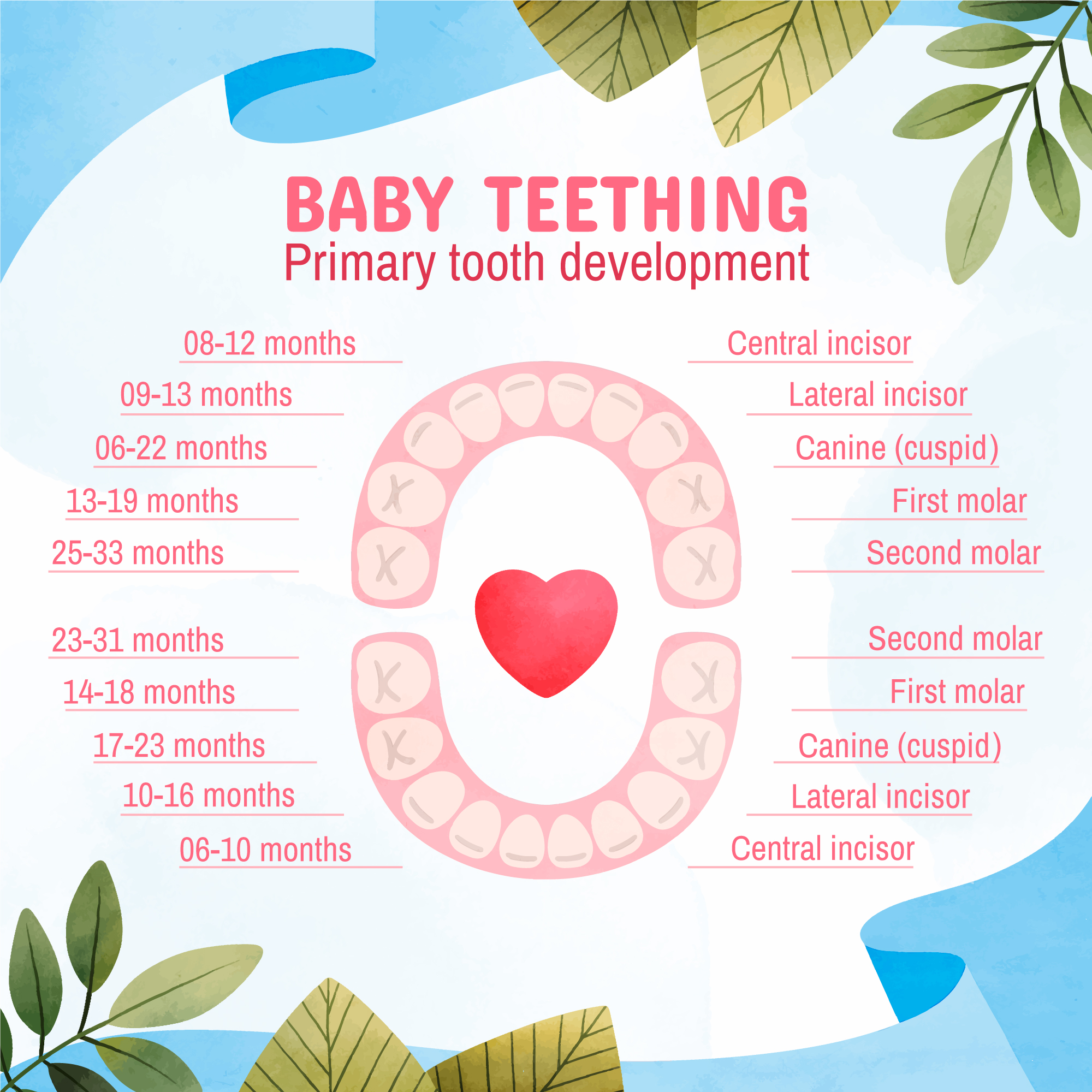Teething is a significant milestone in your baby’s life. While it’s exciting to see those tiny teeth coming in, this phase can be challenging for both babies and parents. Teething often brings discomfort, irritability, and sleepless nights. Knowing the right way to care for your baby during this time is crucial. With proper teething care for babies, you can ease their pain and make this stage smoother.
Do’s of Teething Care for Babies

1. Soothe with a Cool Compress
Cold can help reduce swelling and numb the discomfort. Use a clean, chilled (not frozen) washcloth for your baby to chew on. This simple method is both safe and effective.
2. Massage Their Gums
Use a clean finger to gently rub your baby’s gums. The pressure can provide instant relief. Ensure your hands are washed thoroughly before doing this.
3. Maintain Oral Hygiene for Teething Care for Babies
Even before the first tooth emerges, keep your baby’s mouth clean. Wipe their gums with a soft, damp cloth daily. Once teeth start to appear, use a small toothbrush with soft bristles to clean them.
4. Offer Safe Chewing Options
Give your baby teething toys made of safe, non-toxic materials. Look for options that are easy for your baby to hold and chew. Always supervise your baby while they use these toys.
5. Provide Extra Comfort
Teething can make babies fussy and clingy. Offer plenty of cuddles and soothing words. Sometimes, your presence is the best comfort for your baby.
Don’ts of Teething Care for Babies
1. Avoid Using Over-the-Counter Gels with Benzocaine
Some teething gels contain benzocaine, which can be harmful to babies. Always consult your pediatrician before using any medication.
2. Don’t Ignore Fever or Other Symptoms
Teething may cause mild discomfort, but high fever, diarrhea, or rash are not typical symptoms. If these occur, contact your pediatrician.
3. Don’t Use Unsafe Objects for Chewing
Avoid giving your baby hard or small items that could cause choking or damage their gums. Items like frozen fruits, small toys, or metal spoons can be dangerous.
4. Don’t Overlook Emotional Needs
Teething isn’t just physical; it can affect your baby’s mood. Be patient, and don’t disregard their need for extra attention and comfort during this phase.
5. Never Force a Solution
If one method doesn’t work, don’t force it. Every baby is different. What soothes one baby may not work for another. Experiment with safe options to find what helps your little one the most.
Common Signs of Teething
Recognizing teething signs can help you prepare better. Here are some common symptoms:
- Increased drooling
- Irritability and crankiness
- Chewing on objects
- Swollen or tender gums
- Slightly raised body temperature (not a fever)

Tips for Managing Discomfort in Teething Care for Babies
Teething care for babies is all about providing relief while keeping them safe. Here are some additional tips to manage this phase effectively:
- Stay Consistent: Stick to a routine for meals and naps. A predictable schedule can help comfort a fussy baby.
- Use Natural Remedies: Consider chilled fruits in a mesh feeder for older babies. Always supervise during use.
- Keep a Teething Journal: Track symptoms, what works, and what doesn’t. It can help you better manage future teething phases.
When to Call a Doctor
While teething can be uncomfortable, it shouldn’t cause severe health issues. Consult your pediatrician if:
- Your baby has a high fever.
- Symptoms last longer than a week.
- You notice unusual gum swelling or discoloration.
Teething Care for Babies Helps to Soothe Your Baby’s Teething Pain Today!
Teething can be a challenging phase, but with the right approach, you can make it easier for your baby. Focus on safe and effective teething care for babies, and remember that every baby is unique. Be patient, provide comfort, and celebrate each new tooth as a small victory.

